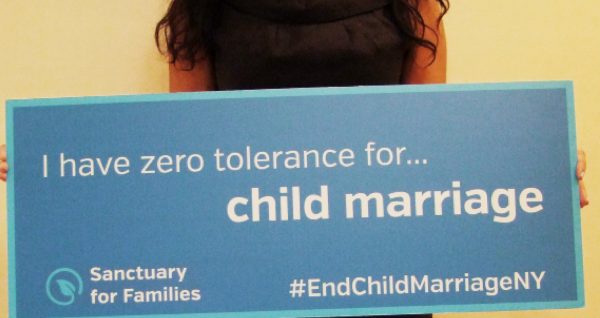Sanctuary Executive Director, Hon. Judy H. Kluger, recently joined advocates for the introduction of State legislation that would limit I.C.E.’s ability to make arrests in and around New York courthouses. Read her remarks.
According to a recent report by the Immigrant Defense Project, I.C.E. arrests inside and around New York courthouses increased by 1700% between 2016 and 2018. Threats of arrest and deportation have deterred an untold number of gender violence survivors from reporting abuse, seeking services, or serving as witnesses in cases.
Sanctuary’s Executive Director, Hon. Judy H. Kluger spoke at a press conference celebrating the introduction of the Protect Our Courts Act — a bill that would make it unlawful for I.C.E. to make a civil arrest while a person is going to, attending, or leaving court unless the officer presents a valid judicial warrant or court order. Read her remarks below:
—
Thank you, Assemblywoman Solages and State Senator Hoylman, for reintroducing the Protect Our Courts Act. In the toxic national environment where important legal safeguards for victims of gender violence are being dismantled, New York State has an unprecedented opportunity to strengthen the laws and systems that protect thousands of survivors of domestic violence and sex trafficking who live here.
At Sanctuary for Families, 75% of the gender violence survivors we serve are immigrants who rely on the courts for orders of protection, child custody and support. Some are witnesses in criminal cases against their abusers.
The threat of being arrested by ICE in a courthouse forces immigrant victims of gender violence to make the tough choice between their safety and the chance of deportation. This spreads fear, not justice, and discourages many of our clients from seeking the protections they rightfully deserve.
Recently, one of our clients, originally from Mexico, became terrified of appearing in Bronx Family Court – where she had filed for custody and visitation of her children and two violations of an order of protection against her abusive ex-partner.
She had seen a flyer on the subway warning that ICE agents may be in the courthouse. First, she had feared her abuser. Now she feared ICE detaining her in the very place where she was supposed to find safety.
The deputy director of our legal center ended up going with her to every court date. Because our client testified, her ex-partner received eight weeks in prison. If we had not been able to go with her, she never would have appeared in court, and he would never have been brought to justice.
We cannot let distrust in law enforcement and in our judicial system become the norm. We urge the New York State legislature and Governor Cuomo to make sure the Protect Our Courts Act becomes law in this session and restore the sanctity of our courtrooms as a place where justice can be sought by all without fear.
We also urge the Office of the Court Administration to move forward a rule that would require a federal warrant for immigration agents to arrest undocumented immigrants in state courthouses, adding another layer of protection to our judicial system.
As a former judge, I know the importance of courts as safe havens for all who seek its remedies. The fair administration of justice depends on it. The threat of ICE interference undermines it.
—
Read more about what was said here.

